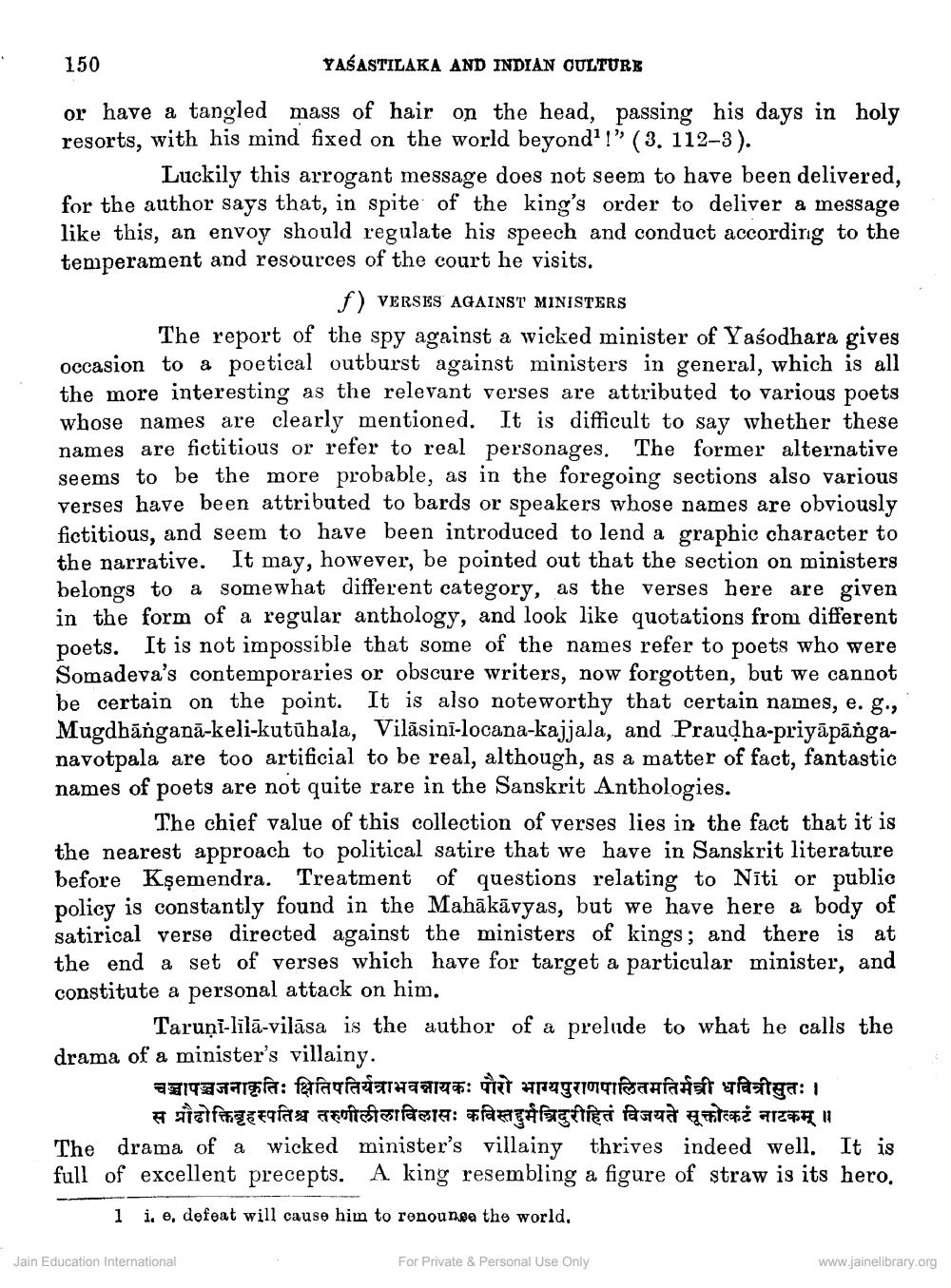________________
150
YAŚASTILAKA AND INDIAN CULTURE
or have a tangled mass of hair on the head, passing his days in holy resorts, with his mind fixed on the world beyond?!” (3. 112–3).
Luckily this arrogant message does not seem to have been delivered. for the author says that, in spite of the king's order to deliver a message like this, an envoy should regulate his speech and conduct according to the temperament and resources of the court he visits.
f) VERSES AGAINST MINISTERS The report of the spy against a wicked minister of Yasodhara gives occasion to a poetical outburst against ministers in general, which is all the more interesting as the relevant verses are attributed to various poets whose names are clearly mentioned. It is difficult to say whether these names are fictitious or refer to real personages. The former alternative seems to be the more probable, as in the foregoing sections also various verses have been attributed to bards or speakers whose names are obviously fictitious, and seem to have been introduced to lend a graphic character to the narrative. It may, however, be pointed out that the section on ministers belongs to a somewhat different category, as the verses here are given in the form of a regular anthology, and look like quotations from different poets. It is not impossible that some of the names refer to poets who were Somadeva's contemporaries or obscure writers, now forgotten, but we cannot be certain on the point. It is also noteworthy that certain names, e.g., Mugdhānganā-keli-kutūhala, Vilāsini-locana-kajjala, and Praudha-priyāpānganavotpala are too artificial to be real, although, as a matter of fact, fantastic names of poets are not quite rare in the Sanskrit Anthologies.
The chief value of this collection of verses lies in the fact that it is the nearest approach to political satire that we have in Sanskrit literature before Kşemendra. Treatment of questions relating to Nīti or public policy is constantly found in the Mahākāvyas, but we have here a body of satirical verse directed against the ministers of kings; and there is at the end a set of verses which have for target a particular minister, and constitute a personal attack on him.
Taruņi-lila-vilása is the author of a prelude to what he calls the drama of a minister's villainy.
चचापञ्चजनाकृतिः क्षितिपतियंत्राभवनायकः पौरो भाग्यपुराणपालितमतिर्मत्री धवित्रीसुतः।
स प्रौढोक्तिबृहस्पतिश्च तरुणीलीलाविलासः कविस्तदुर्मत्रिदुरीहितं विजयते सूक्तोत्कटं नाटकम् ॥ The drama of a wicked minister's villainy thrives indeed well. It is full of excellent precepts. A king resembling a figure of straw is its hero.
1 i. e, defeat will cause him to renounce the world,
Jain Education International
For Private & Personal Use Only
www.jainelibrary.org




